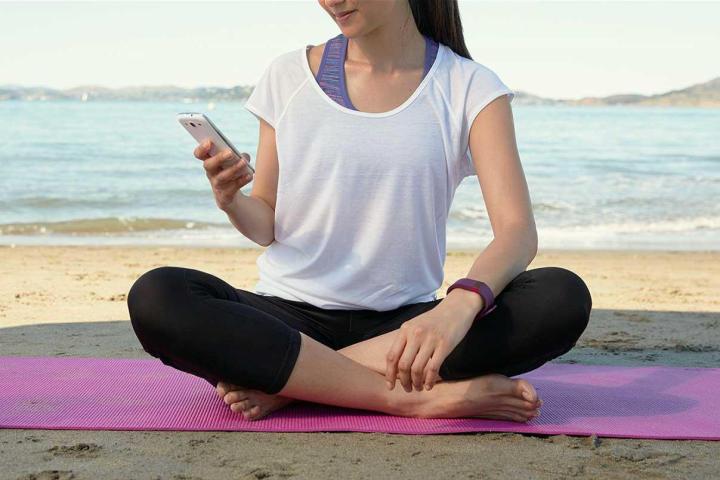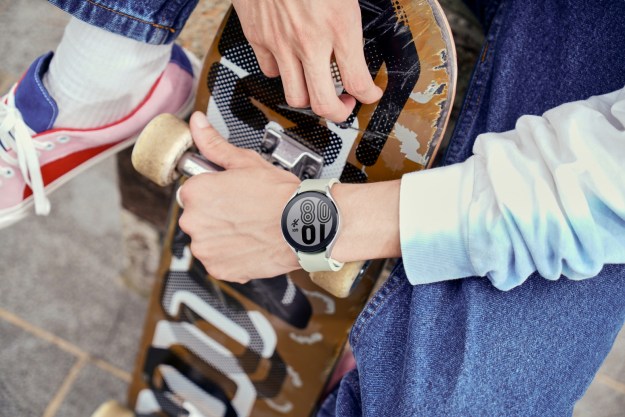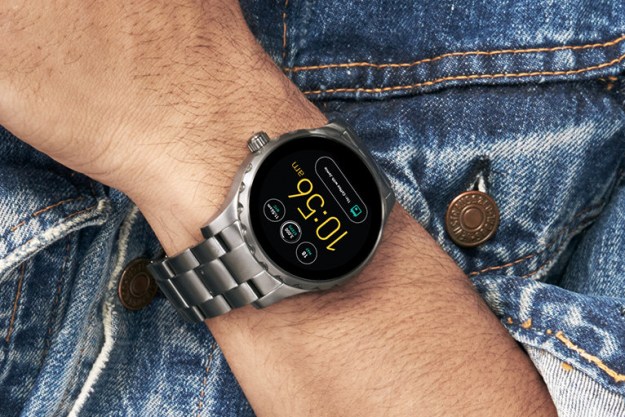
Yet the Food and Drug Administration decided last week that it should regulate certain wearables — and this is a Good Thing.
In a sense, your FitBit may soon becoming the technological equivalent of a bottle of Gingko-Bilbo.
If anything, I’m surprised it took the regulatory organization so long to take action. Or rather, to publish a non-legally-binding draft guidance note highlighting what it might possibly eventually do. Plenty of sites spun the move as the FDA taking a firm stance on the burgeoning world of wearables, and while this is anything but, it’s certainly a start.
In a funny sort of way, this recognition by the FDA marks a new level of legitimacy for the world of wearables. It’s an acknowledgement that they have moved on from flash-in-the-pan tech products to devices that will and do have a significant role in our lives. That role is even more important when it goes beyond convenience, productivity or entertainment, and claims to affect our well-being. That’s where the FDA has decided to draw the line.
The organization has effectively said is that it’s not going to regulate the vast majority of wearables that hit the market, including those that fall into the category of “general wellness devices.” Anything that promises to, say, treat an existing ailment, or serve as a sort of prosthetic, on the other hand (zing!), will fall within the FDA’s purview.
It’s a bit akin to the difference between prescription drugs and all of those over-the-counter vitamins. You know, the ones with asterisks on the label and the tiny text, “claims not evaluated by FDA.” Your FitBit may soon be becoming the technological equivalent of a bottle of Gingko-Biloba.

This is not an attempt to discredit either one, mind you. But as you’re watching those FitBit ads with all of those happy, healthy people running around in bright colors, doing happy, healthy people things, remember there is currently no strict regulation backing up those visuals. There may never be — and for the most part, that’s perfectly fine.
After all, the extent to which most wearables succeed in helping people reach and surpass their fitness goals is largely psychological. That is to say, there’s nothing inherent in the technology of a Jawbone device that will make your life better. For most of us, calorie tracking and step counting present little more than a gamification aspect that drives those with a competitive edge to compete against themselves and others.
This recognition by the FDA marks an extra level of legitimacy for the world of wearables.
We tread into trickier territory as more features are added. Heart-rate monitoring presents an interesting bridge between the two that is rapidly growing ubiquitous in mainstream devices. Granted, it’s not quite like measuring your blood sugar levels, but it’s not that far off. Heck, early rumors had the Apple Watch (nee: iWatch) featuring a built-in monitor for glucose. If we’re talking about users with diabetes, the smartwatch automatically becomes a serious healthcare device. Later rumors even had the FDA holding up the watch’s release date as the company waited for official approval.
What’s worrisome about these features is the discrepancies we’ve seen among sensors in existing devices. Wear a different smart device on each wrist and you’ll get two readings with two very different numbers. That’s relatively benign when we’re talking calories, step counts, or even heart rate, but offering up inaccurate blood sugar readings could present serious safety concerns.
Ditto for something as seemingly harmless as the UV light monitor on the Microsoft Band. At best, that sort of sensor should be regarded as a backup reminder that you’ve been in direct sunlight for too long. Without regulated consistency across devices, I know I wouldn’t rely on these products for serious health monitoring.

As more and more players enter the field, with more and more products and more and more health claims, it will be interesting to see how companies embrace potential FDA interactions. For some struggling startups simply looking to push their Kickstarter-funded project out the door as quickly as possible, regulation may seem to gum up the works –yet another in a long line of hurdles standing between the company and its first successful release.
For larger companies, however, it could represent a rite of passage. The addition of a little FDA logo alongside the customary FCC stamp may help a product graduate from technological snake oil to legitimate health-care device. (Though for tight-lipped companies like Apple, it will represent another potentially exploitable point of weakness.)
Maybe the days aren’t too far off when gadget blogs start adding the FDA’s site to their lists of feeds to monitor. That’s a small price to to ensure the devices that claim to help us aren’t doing more harm than good.


